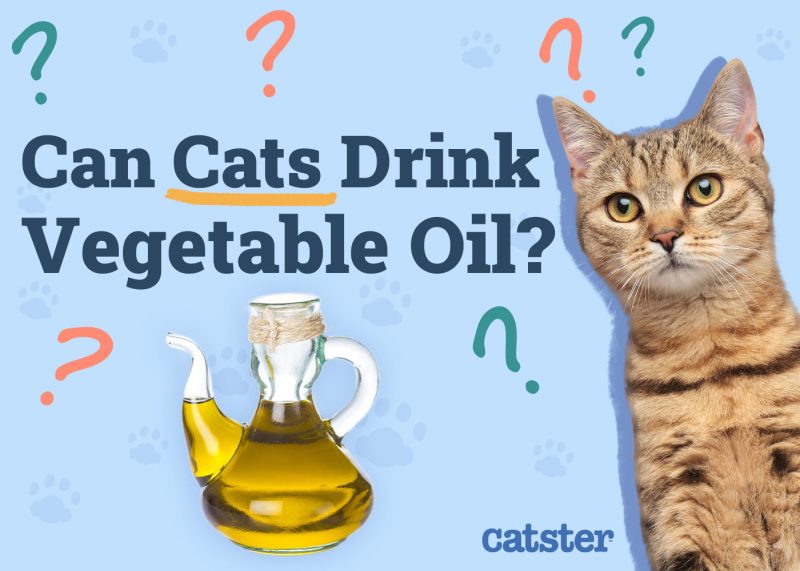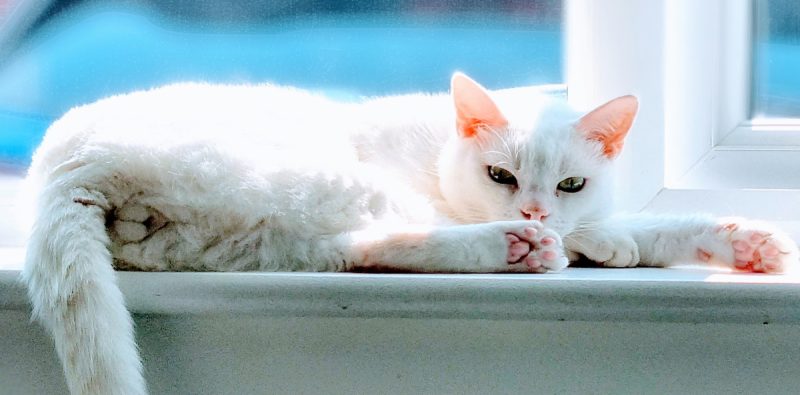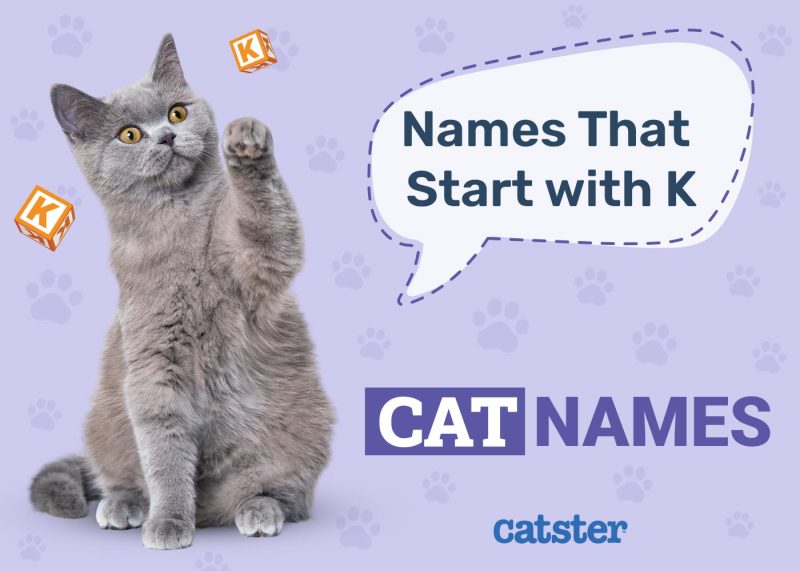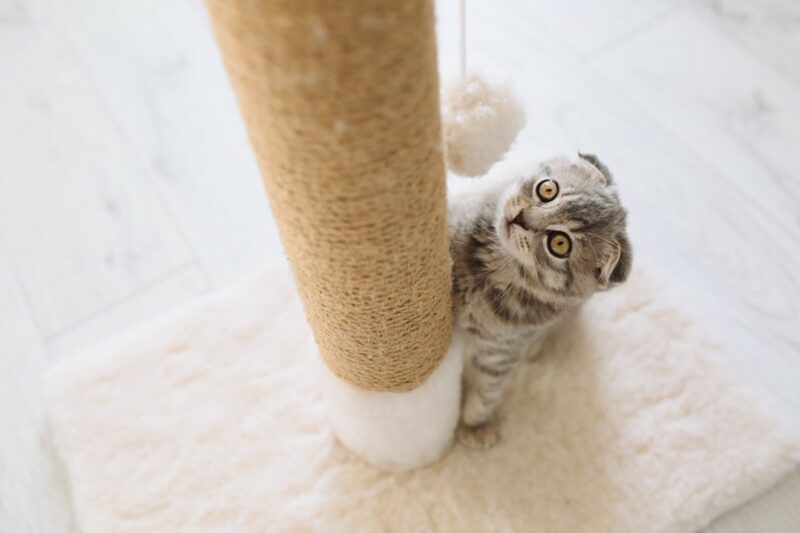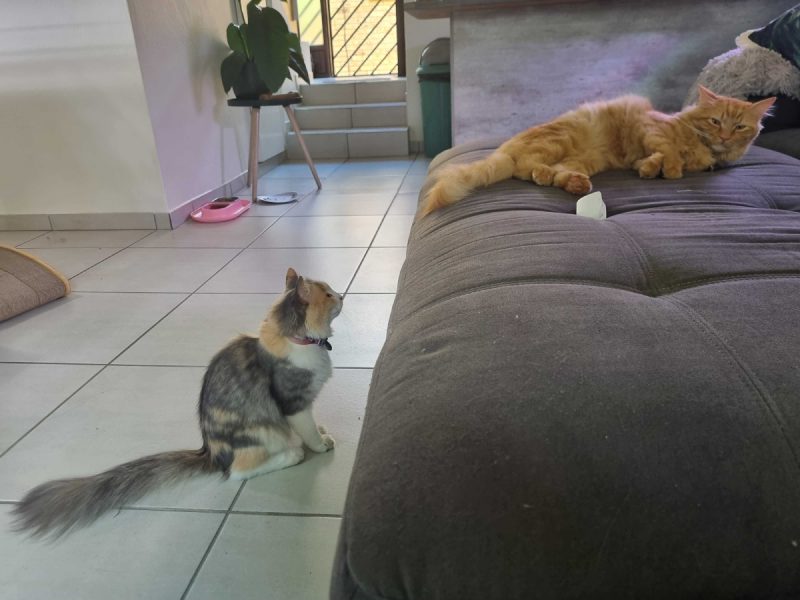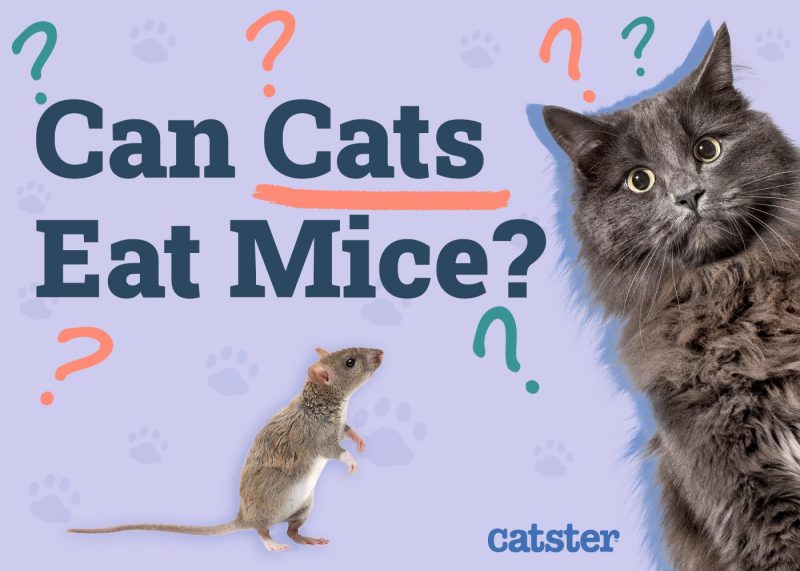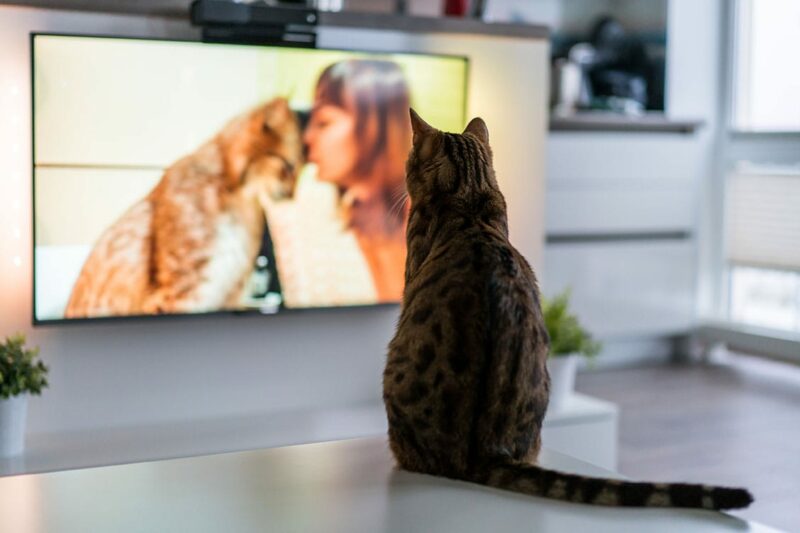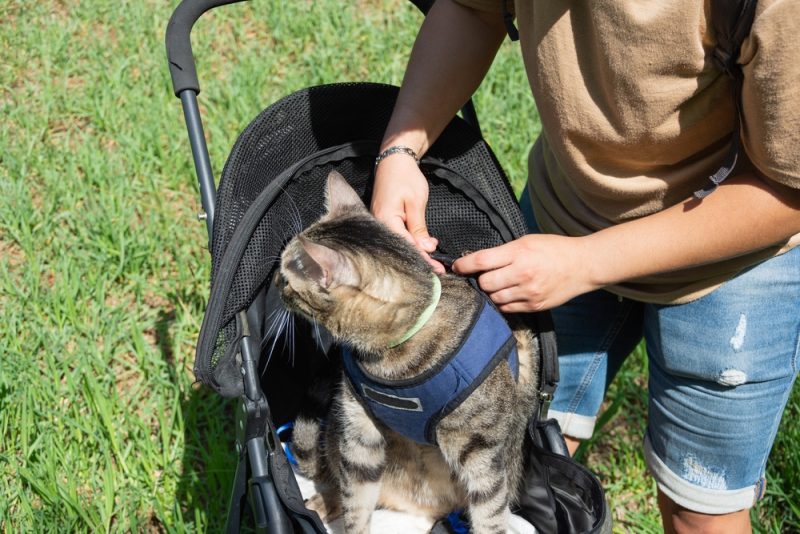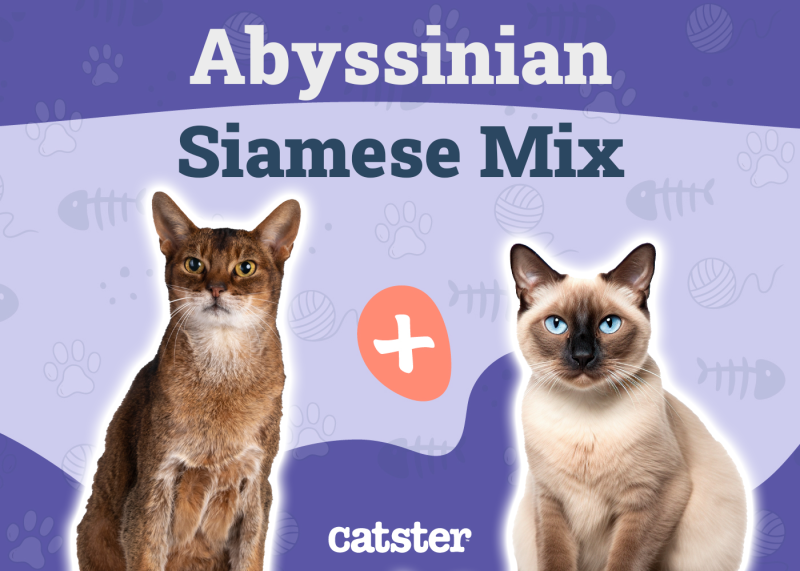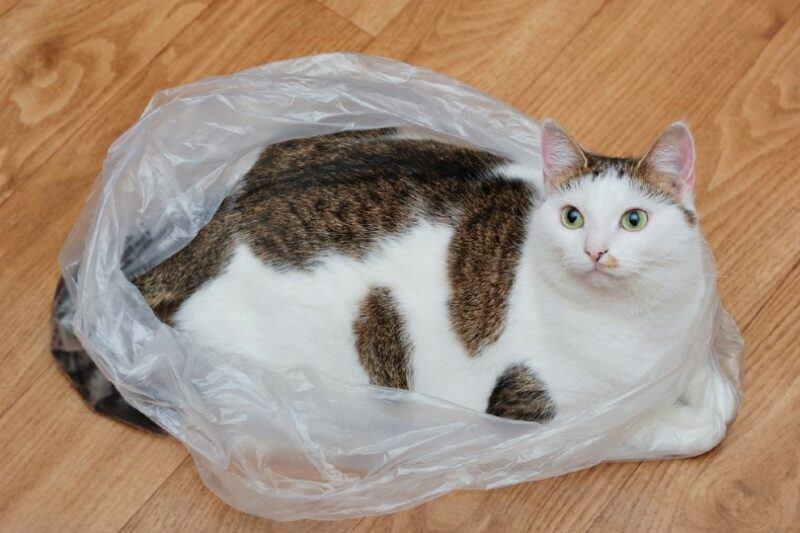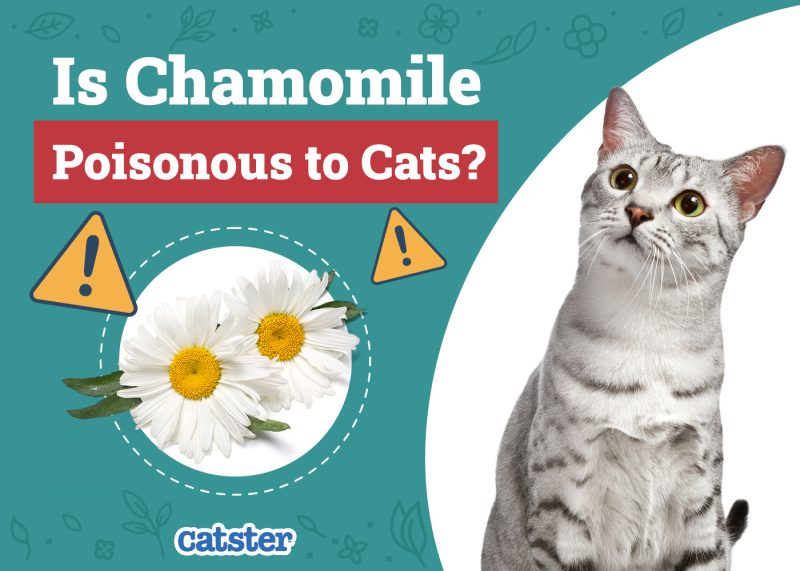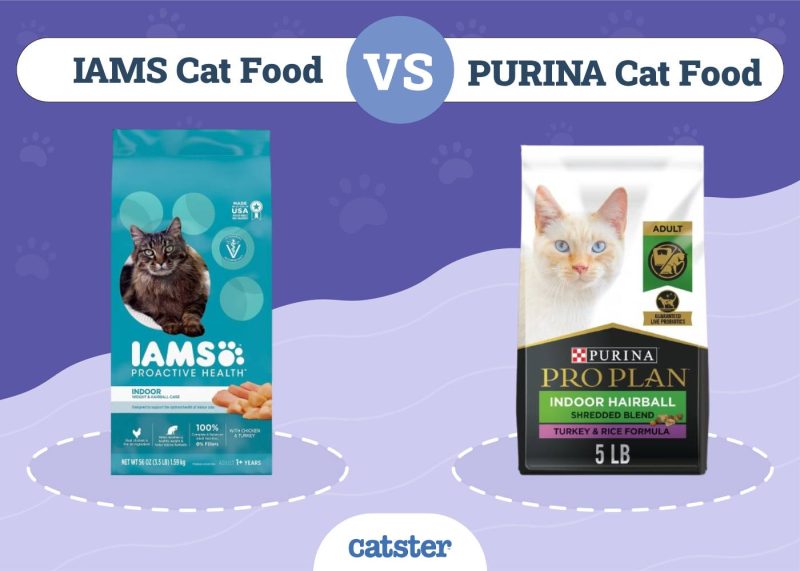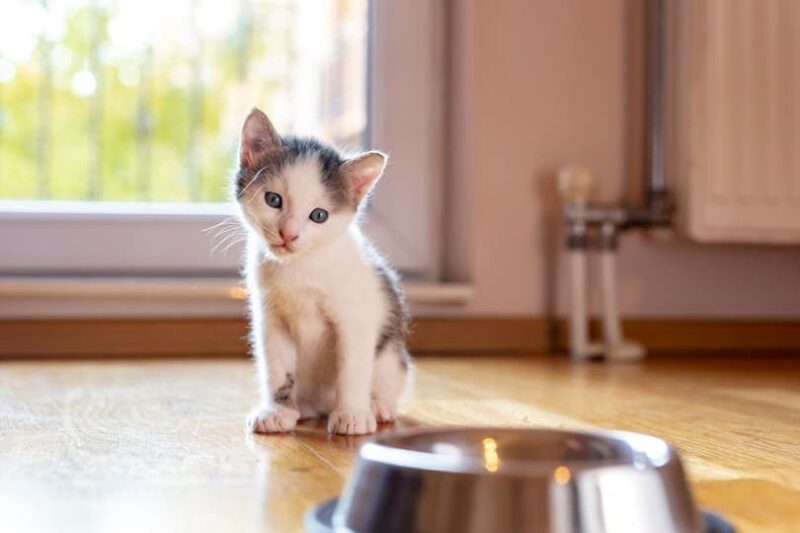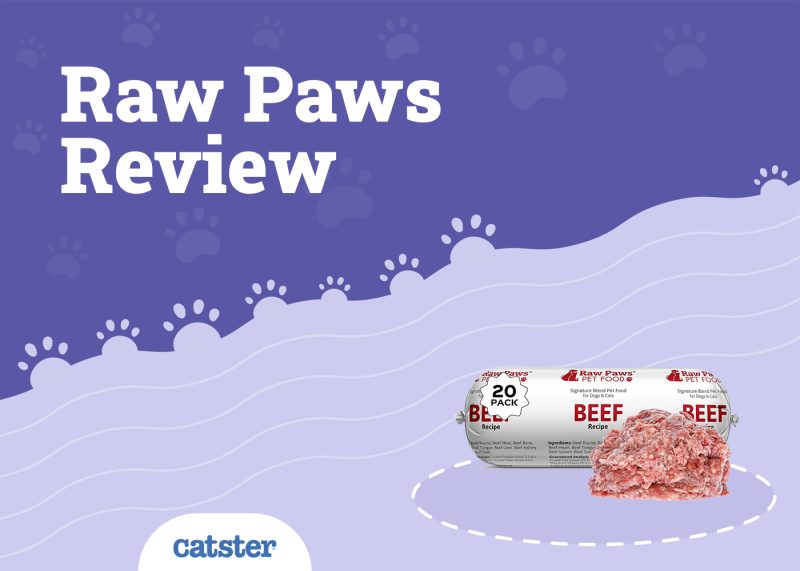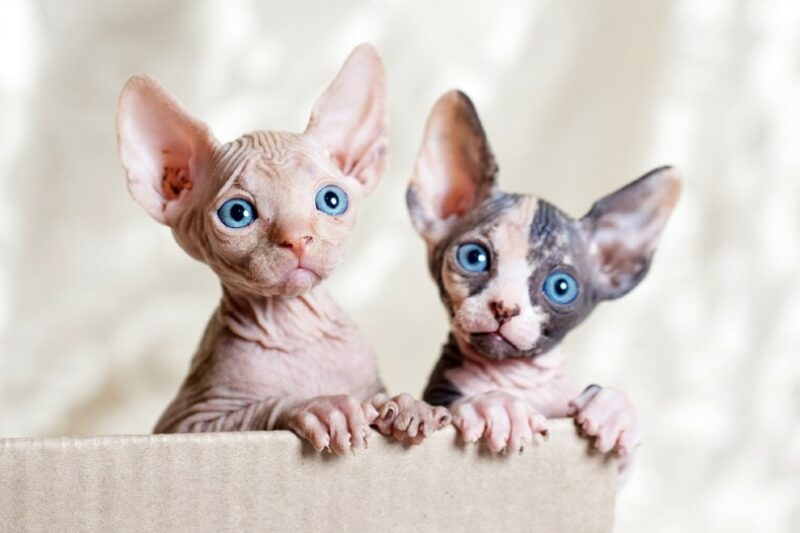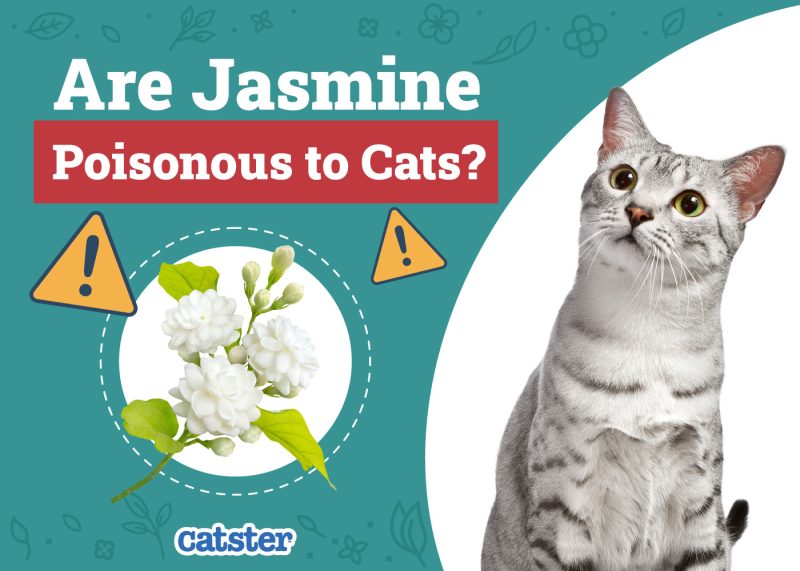Cats are curious creatures that like to put their noses, mouths, and paws everywhere. Moreover, cat parents who cook a lot know how difficult it is to keep their feline’s inquisitive nose out of their kitchen! But if your cat starts eating something questionable off your counter, it’s important to know if it can harm them.
Vegetable oil is a good example. Can you give it to your cat safely? Does it have any nutritional benefits for your feline? Here’s what you need to know about vegetable oil and cats. Vegetable oil is not toxic to cats and is often found in commercial cat food. However, you generally don’t need to give your cat any extra as a supplement.

Can Cats Have Vegetable Oil?
Vegetable oils commonly used in cooking (sunflower or canola oil, for example) are not listed as toxic to cats by the ASPCA or the Pet Poison Helpline. Of course, that doesn’t mean they’re necessarily good for them, but at least you know they won’t cause serious problems.
However, coconut and coconut oil are on the ASPCA’s list of human foods to avoid giving to pets. It is stated that a small amount will not harm them, but the oil may cause stomach upset, loose stools, or diarrhea. This holds true for vegetable oil as well.
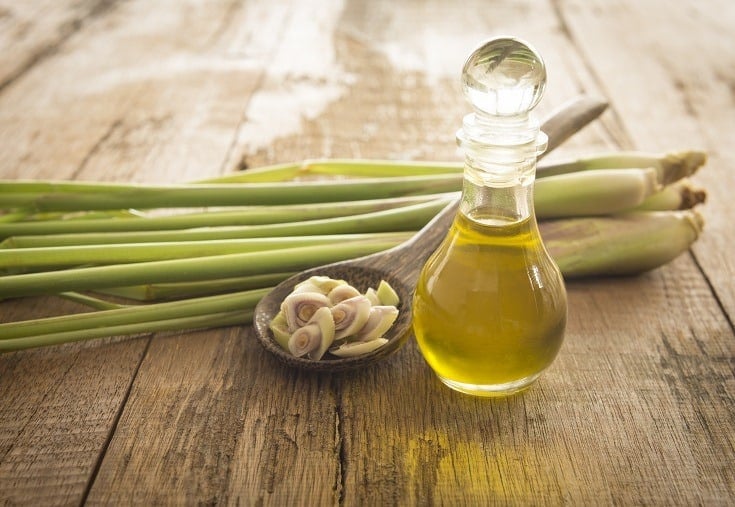
What Are Examples of Vegetable Oils?
Vegetable oils are edible oils extracted from plants. They are found in most processed foods, such as margarine, mayonnaise, pastries, cookies, and salad dressings. Common vegetable oils include soybean oil, sunflower oil, peanut oil, olive oil, and coconut oil.
Why Is Vegetable Oil Often Found in Cat Food Ingredients?
Vegetable oil is often found in dry kibble or wet cat food ingredients. This is because cats need fat in their diet. Fats or lipids are important in more than one way for their body. Indeed, they fulfill several fundamental functions:
- They are involved in the health of the skin and hair, as well as in the assimilation of fat-soluble vitamins (A, D, E, K, etc.). They also provide energy, allowing the cat to stay active.
- Fats are also essential nutrients during the kitten’s growth, in the same way as proteins.
- Another crucial role fats play in the cat’s body is the regulation of the inflammatory response.
What About Essential Fatty Acids?
Omega 3 (alpha-linolenic acid) and omega 6 (linoleic and arachidonic acid) are essential fatty acids. The term “essential” refers to the fact that they are primordial for the cat’s health and that the cat’s body does not synthesize them. They must, therefore, be added to the cat’s diet.
What are Common Sources of Fat in Cat Food?
Cat food often consists of animal fats and vegetable oils. Linoleic acid is found in poultry, beef, and pork fat, but the best sources are corn, soybeans, and safflower oil. Arachidonic acid is in animal fats and fish oil. Omega-3 fatty acids are in fish oil, krill oil, and flax seeds.
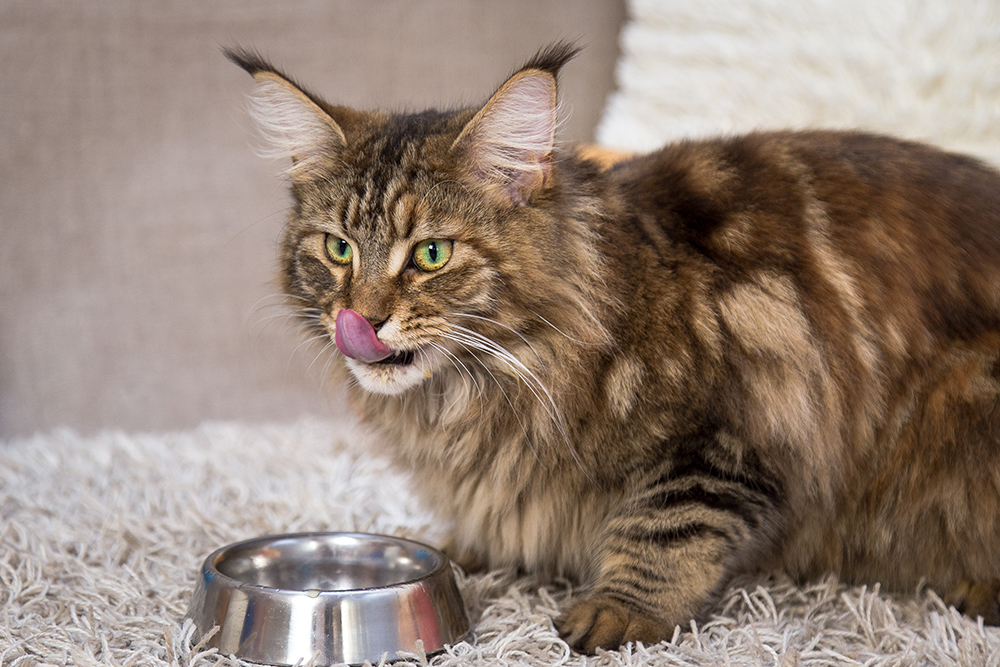
Should You Occasionally Give Your Cat Vegetable Oil?
If you feed your cat a balanced diet, their fat requirements should already be met. However, incorporating oil into your cat’s diet may help reduce hairballs by lubricating the digestive tract, making it easier for hairballs to pass naturally. There are commercially prepared hairball treatments available, but speak with your veterinarian before adding oil to your cat’s diet to ensure it is appropriate.
As for coconut oil, PetMD reports that using it for cats may have some benefits, but mostly externally. It can help relieve allergies and dry and itchy skin and improve the appearance of the coat, among other things.
Although the ASPCA list says it’s best to avoid giving cats coconut oil, PetMD mentions that a small amount can benefit the immune system, help with hairballs, reduce arthritis inflammation, improve bad breath, and help promote a healthy stomach.
This information, however, may confuse whether the potentially beneficial effects of coconut oil for cats outweigh its negative effects. So, again, it’s best to discuss this with a vet before giving your feline coconut or any type of oil (or supplement).
Need veterinary advice but can't get to the clinic? Catster recommends PangoVet, our online veterinary service. Talk to a vet online and get the answers and advice you need for your cat without having to leave your living room — all at an affordable price!

What Happens if Your Cat Consumes Too Much Vegetable Oil?
Your cat is unlikely to have any adverse effects if they consume a small amount of vegetable oil. But giving your kitty too much vegetable oil can cause gastrointestinal issues, such as diarrhea, vomiting, gas, and bloating.
Since the oil is high in calories, it can also cause your pet to gain weight.

Bottom Line
Vegetable oil is non-toxic to cats and is even on the ingredient list of most wet and dry foods. However, if your cat is on a balanced diet, there’s really no reason to give them vegetable oil as a dietary supplement other than to improve the passage of hairballs through their digestive tract. In any case, always speak with your veterinarian beforehand if you’re considering adding any oils or supplements to your cat’s diet.
Featured Image Credit: stevepb, Pixabay

